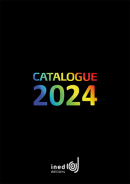
European rainbow families in the making:practices, norms and the law
Collection : Documents de travail
n° 242, 2018, 216 pages
Homosexual conjugality and parenthood have gradually become legally accessible in many European countries but at different levels of equality with those of heterosexuals. In 2015, as part of the European FamiliesAndSocieties project, teams from four countries conducted interview surveys in France, Iceland and Spain, countries that had opened the marriage to same-sex couples, and in Italy, which at the time, had no legal provisions. The research examines how the individuals concerned perceive legal developments, or their absence in the case of Italy, in their daily lives. It deals with the evaluation of the societal environment with regard to homosexuality.
The four national reports presented here served as a source for a comparative study. This study concluded that in all the fields studied, a lack of access to the law generates statutory, social and economic inequalities. In the most legally advanced countries, equal access to marriage and parental rights has been described as a necessity in achieving equity. The law introduces access to a known and recognized model of life, and brings as thus a strong support for social and family recognition. It is a fundamental tool of social integration.














